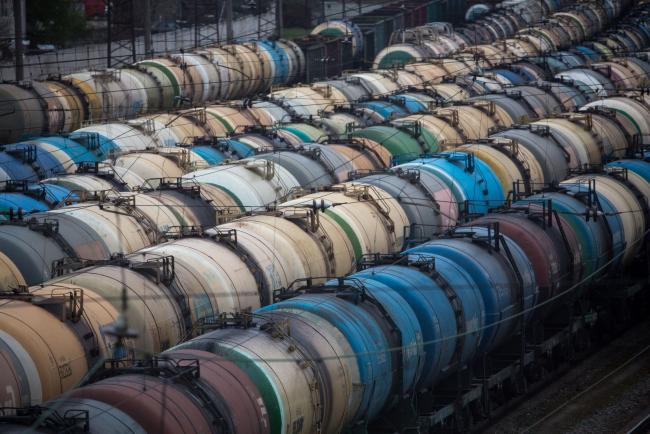(Bloomberg) -- Treasury Secretary Janet Yellen said talks are continuing on how the US and its allies might cap the price of Russian oil exports, possibly through a plan that offers exceptions to the European ban on insuring Russian oil shipments.
“We are continuing to have productive conversations, today and with our partners and allies around the world with how to further restrict energy revenues to Russia while preventing spillover effects to the global economy,” Yellen said during a press conference in Toronto alongside Canadian Finance Minister Chrystia Freeland.
“We are talking about price caps or a price exception that would enhance and strengthen recent and proposed energy restrictions by Europe, the United States, the UK and others,” she said.
The US and Canada have banned imports of Russian oil while the European Union has agreed to prohibit seaborne imports of Russian crude in six months. Atop that, the EU has worked toward coordinating with some Group of Seven members, including the UK, on a ban on the insurance services needed to ship Russian oil anywhere in the world.
About 95% of the world’s tanker liability coverage is arranged through a London-based insurance organization called the International Group of P&I Clubs that has to heed European law.
Asked to explain further her “price exception” comment, Yellen said it would be “essentially a price cap” and act as an exception to the European insurance ban.
When asked if it would be ready for G-7 leaders who meet June 26-28 in Germany, she said, “Stay tuned,” adding, “we’re really actively working on this with our partners.”
Since Russia’s invasion of Ukraine in February, global oil prices have risen dramatically, exacerbating inflation already whipped high during the pandemic by supply-chain disruptions and, especially in the US, the fiscal response to the pandemic. The national average price for a gallon of gasoline in the US recently topped $5.
On a related topic, Yellen rejected the idea that restarting the Keystone XL pipeline project would help increase supplies of oil and lower prices because it would take years to accomplish, though she added the decision is not in her hand.
President Joe Biden, who campaigned on an ambitious climate platform, canceled the Keystone XL pipeline -- which would would run between the US and Canada -- hours after taking office. The project was under construction when Biden revoked its presidential permit. It would have transported more than 800,000 barrels of oil a day.
“I don’t see it as a short-term measure to address the current situation, and longer-term we remain committed to our climate change objectives, but, you know, it’s really up to the president to consider,” she said.
She did offer qualified support for the idea of gasoline tax holidays. Economic research, she said, shows that tax holidays enacted by states have a higher pass-through to consumers than would a similar move by the federal government, but added, “It is something that should be under consideration as a policy to address it.”
©2022 Bloomberg L.P.

